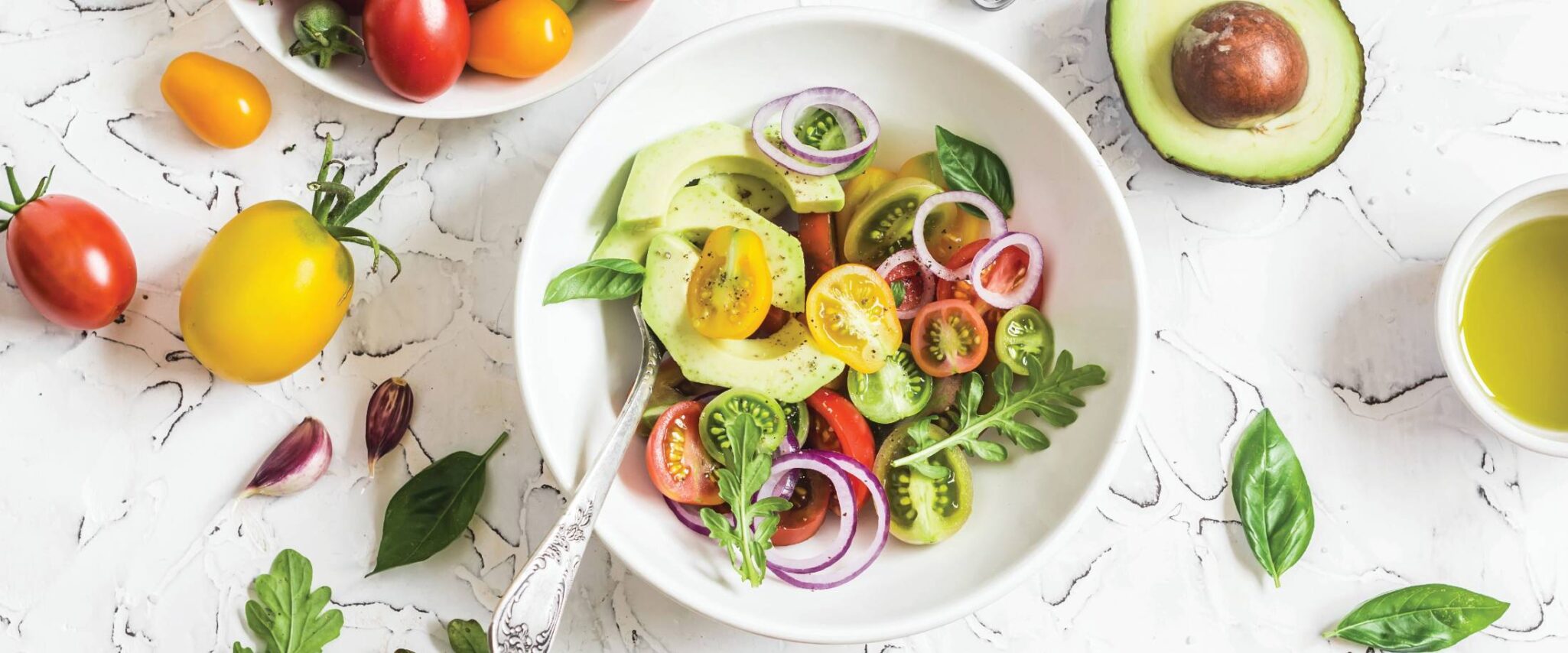The Best Foods to Promote Health in Seniors and Combat Common Aging Issues

Dietary needs change with aging. A slowing metabolism and decreased activity levels can mean the body needs less fuel for energy. And while you find you may need to eat less, you do need to eat smarter.
Why is senior nutrition so important? Older adults’ ability to absorb and utilize many nutrients becomes less efficient, and the presence of chronic health conditions and the use of medications can also interfere with nutrient absorption. Since what you eat has a big impact on your bone and eye health, vascular function, immune system and cognitive function, the best diet for seniors isn’t a “diet” at all. It’s a smart plan for eating nutrient-rich foods that can improve your quality of life.
For optimum senior health, here are some key nutrients to incorporate into your daily meals.
Vitamin B12
This nutrient helps maintain nerve function and red blood cell formation. Good sources include:
- Seafood
- Meat
- Dairy
- Eggs
- Foods fortified with vitamin B12
Vitamin C
This antioxidant is a key element in good senior nutrition because it helps wounds heal faster, quickens the body’s ability to repair bones and teeth, and can help prevent heart disease and cancer. It also aids collagen production, which gives your skin elasticity. Sources of Vitamin C include:
- Cauliflower
- Kiwi
- Papaya
- Kale
- Citrus fruits
- Brussels sprouts
- Broccoli
Vitamin D
This vitamin helps your body absorb calcium. Vitamin D and calcium are the two most important vitamins for preventing osteoporosis. Vitamin D also helps protect against chronic conditions such as Type 2 diabetes and cancer. Sources include:
- Sunshine
- Egg yolks
- Oily fish such as salmon, sardines, herring and mackerel
- Foods fortified with Vitamin D
Omega-3 fatty acids
This helps prevent inflammation, which reduces the risk of cancer, rheumatoid arthritis and heart disease. It also helps keep the brain healthy. Two servings of Omega-3 fatty acids per week are usually sufficient. Sources include:
- Soybeans
- Flaxseed
- Canola oil
- Fish and other seafood
- Nuts and seeds
Calcium
Calcium helps build strong bones, helps your blood clot, and helps muscles – like your heart – contract. If you have a calcium deficiency, your body will begin to pull from the existing calcium in your bones, which weakens them and leads to osteoporosis and makes you more prone to injuries like a broken hip. Sources include:
- Dairy (milk, yogurt, cheese)
- Leafy greens
- Seafood
- Legumes
- Dried fruit
- Tofu
Potassium
This nutrient promotes kidney health by aiding in cell function and reducing blood pressure. Good sources include:
- Bananas
- Avocados
- Potatoes (both white and sweet)
- Oranges
- Honeydew melon
- Dried fruits, such as dried plums, raisins, dates
- Mushrooms
- Cooked spinach
Fiber
As you age, the gastrointestinal walls thicken, slowing the digestive process and making you more prone to constipation. Fiber aids in digestion and helps slow the body’s absorption of sugar, preventing spikes after meals. Sources include:
- Nuts
- Whole grains
- Brown rice
- Fruits
- Vegetables
Iron
Iron produces hemoglobin, which carries oxygen from the lungs to the rest of the body. If you have an iron deficiency, your organs and tissues aren’t receiving enough oxygen, which can result in anemia, tiredness and lethargy. Good sources for iron include:
- Dark leafy greens
- Tofu
- Dark chocolate
- Red meat
- Beans
- Dried fruits
- Fortified foods
Magnesium
Magnesium keeps your heart healthy, your bones strong, and your immune system stable. You’ll need five portions a day to keep your heart healthy. Some medications for older people can cause magnesium deficiency, so it’s important to keep this up. Good sources include:
- Whole grains
- Nuts
- Green leafy vegetables
- Nuts and seeds
- Legumes
Lycopene
This natural chemical can protect against prostate cancer and lung cancer. When looking for sources of lycopene, go for red and pink foods:
- Tomatoes (they release more lycopene when cooked)
- Pink grapefruit
- Watermelon
- Pink guava
- Papaya
Water
Don’t forget about this vital nutrient as part of good senior nutrition. Drinking a lot of water is one of the most important parts of staying healthy. Staying hydrated aids in most bodily processes, from regulating body temperature to running the digestive system smoothly to keeping the skin youthful. Eight 8-ounce glasses per day is a good rule of thumb, but it does depend on your age, weight, gender and activity level — you can use an online calculator to help you determine exactly how many ounces you need per day, but it’s hard to drink too much water, so the more you can drink, the better.
Vitamin B6
This water-soluble vitamin aids in metabolism and immune function, and is involved in over 100 enzyme reactions in the body. Sources include:
- Chickpeas
- Salmon
- Chicken
- Potatoes
- Bananas
- Cottage cheese
- White rice
- Onions
Protein
Protein is found in every cell in the body. It supports immunity, muscle maintenance and physical function. Good sources of protein include:
- Beef
- Greek yogurt
- Salmon
- Chicken
- Lentils
- Almonds
- Low-fat milk
- Quinoa
- Spinach
- Chickpeas
- Oatmeal
- Avocados
There are supplements available to make up for a deficiency of any of these vitamins and nutrients to create a more balanced diet for seniors. Always consult with your doctor before changing your diet drastically or adding supplements into the mix.
Proper senior nutrition is one vital step to promoting senior health and staying able to remain active well into your retirement. When you combine a healthy diet with all the engaging wellness activities Lake Seminole Square has to offer, such as participating in water volleyball, enjoying our indoor walking trail or taking classes in the fitness center, you have everything you need to prioritize your health.




